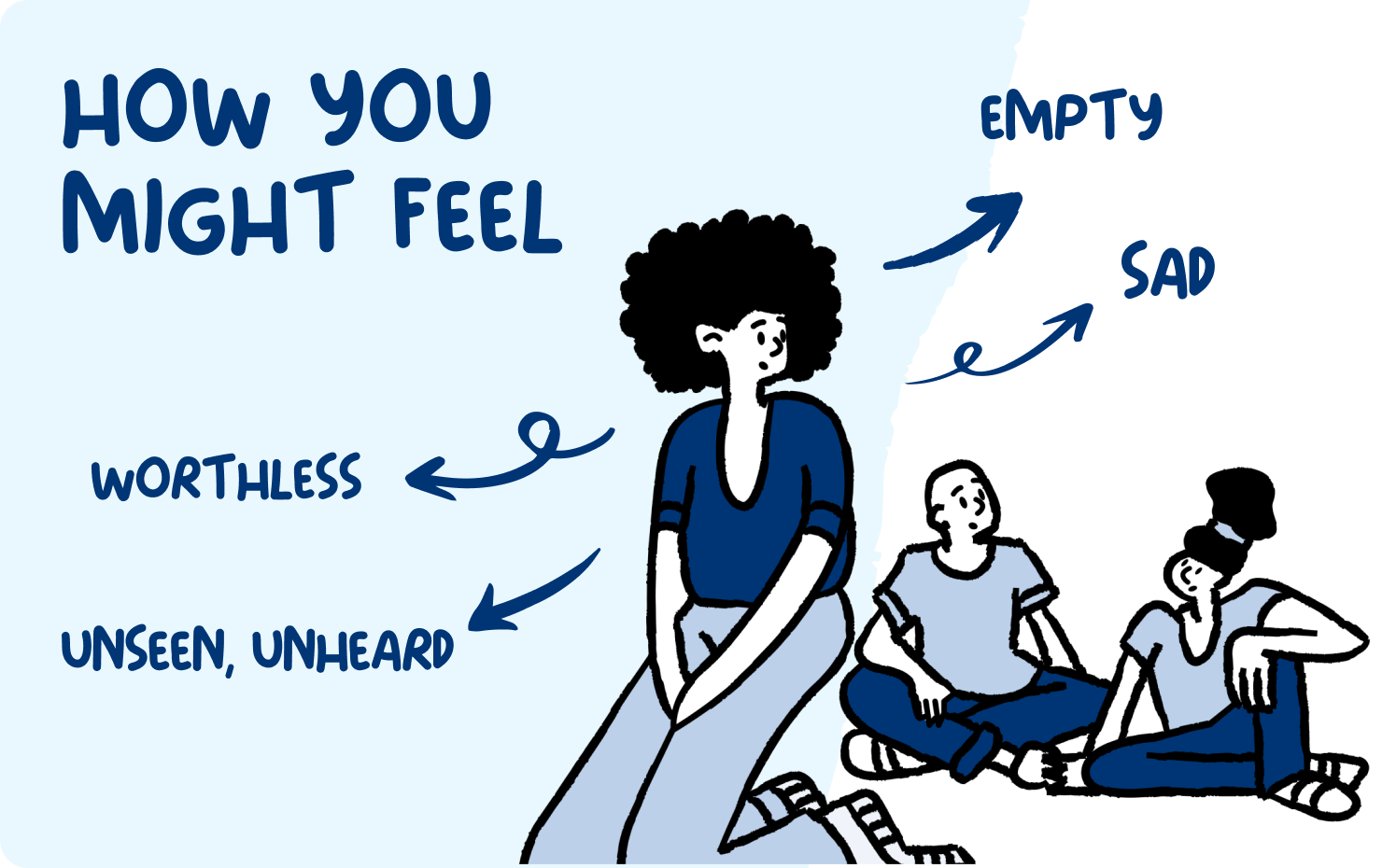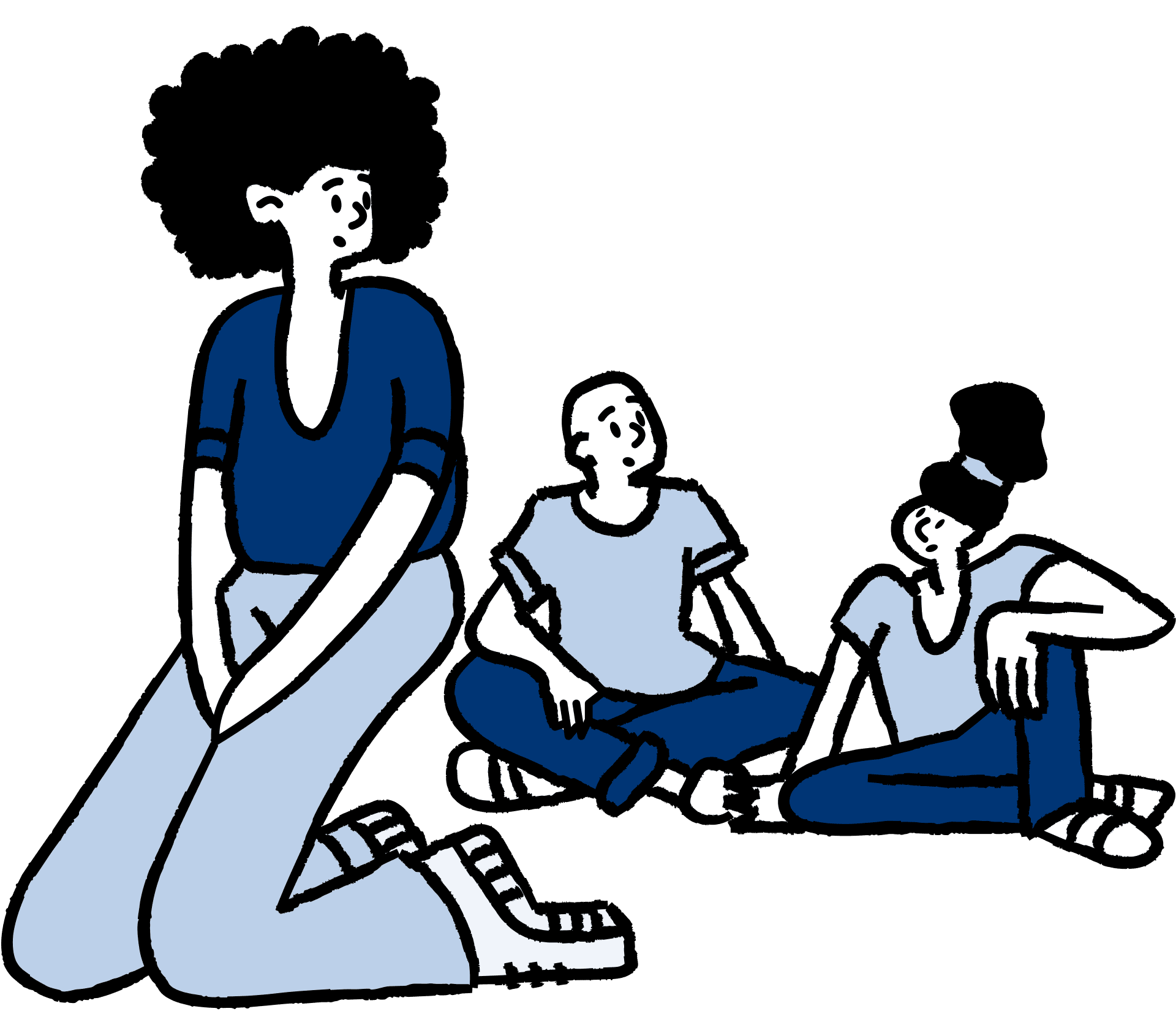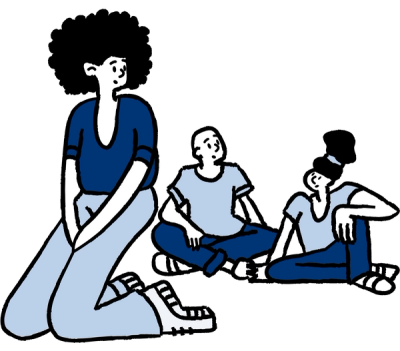What does loneliness feel like and how can it affect me?
Loneliness can have really serious effects on how we feel, what we think, and even on our physical health.
We all deserve to have nourishing social connections, so if you’re feeling lonely, remember there are things you can do right now, and long-term strategies that work.
“It feels like there’s a hole inside me, and as much as I try to fill it with other things, it just keeps eating away at me.”
Feelings and thoughts
Loneliness can often cause other related feelings, such as:
- Feeling empty
- Feeling worthless
- Feeling unseen, unheard, or misunderstood
- Feeling sad, down or low.
When we have these feelings, our brains naturally try to make sense of them. We might justify these feelings with reasons for why we are lonely (“nobody likes me”), or come up with thoughts to try and make ourselves feel better (“being alone means I won't get hurt anyway”).
That means you might think some of the things listed below - but it’s important to remember these aren’t necessarily true or accurate.
You might think:
- “Nobody cares about me”
- “I deserve to be alone”
- “There must be something wrong with me”
- “It’s all meaningless”
- “It’s safer to be alone…nobody will reject me”.
These self-critical thoughts are often the opposite of what’s really true and just leave you feeling worse. You can explore some of the real reasons why you might feel lonely on our causes page.

“I started to isolate myself from everyone around me. It felt as if everything was moving, and I was just stagnant; I couldn’t catch up.”
Physical effects
Our mind and body are inseparable from each other - meaning how we’re feeling emotionally has effects on our physical health too.
Other studies have found that loneliness may also be linked to:
- Poor sleep quality
- An increased risk of heart problems such as stroke and heart disease
- A weakened immune system and the tendency to get sick more often
- A decline in our brain’s performance and an increased risk of dementia
- An increased risk of health problems later in life.
Other effects
It’s natural to want to escape feelings of loneliness, which can lead some people to try and fill the void inside with coping mechanisms that can cause both immediate and long-term problems.
Some common unhelpful coping mechanisms include:
- Misusing substances such as drugs, alcohol or nicotine
- Addictive behaviours such as gambling, gaming, pornography, over-eating, over-exercising or over-working
- Self-harm
- Risky behaviours such as unsafe sex.
Feeling lonely doesn’t mean you’ll necessarily experience any of these effects. Learning more about loneliness, like you’re doing right now, is the first step to feeling more connected.
There are also things you can do right now and in the long term to reduce feelings of loneliness.
Click here to download, save, or print our loneliness fact sheet.





